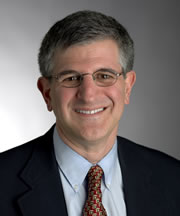PHILADELPHIA – Three professors from the Perelman School of Medicine at the University of Pennsylvania have been elected members of the Institute of Medicine (IOM), one of the nation's highest honors in biomedicine.
The new members bring Penn's total to 75, out of a total active membership of 1,688. Overall, the IOM named 65 new members this year and five foreign associates.
The IOM was established in 1970 by the National Academy of Sciences to honor professional achievement in the health sciences and to serve as a national resource for independent analysis and recommendations on issues related to medicine, biomedical sciences, and health.
The new Penn IOM members are:
 Vivian G. Cheung, M.D. is professor of Genetics and Pediatrics and an investigator of the Howard Hughes Medical Institute. Dr. Cheung received her B.S. from the University of California, Los Angeles, and her M.D. from Tufts University School of Medicine. Dr. Cheung is a pediatric neurologist; her research focuses on human genetics and genomics. In particular, her lab combines computational and experimental methods to study normal variation in human traits and genetics of complex diseases. She and her colleagues demonstrated that like other quantitative traits, expression levels of genes are variable and genetically regulated. This led to the establishment of the field of Genetics of Gene Expression, which has greatly enhanced the understanding of gene regulation in humans and other organisms. More recently, it has led them to a surprising finding that questions the fundamental step of how DNA is copied into RNA and proteins. In addition, her group studies genetics of human meiotic recombination and responses of human cells to cellular stresses and perturbations. For her contributions to human genetics, Dr. Cheung received the Curt Stern Award from the American Society of Human Genetics in 2010. Besides her positions at HHMI and Penn, she also serves as a Councilor of the American Society for Clinical Investigation, and is on the Board of Directors of the American Society of Human Genetics.
Vivian G. Cheung, M.D. is professor of Genetics and Pediatrics and an investigator of the Howard Hughes Medical Institute. Dr. Cheung received her B.S. from the University of California, Los Angeles, and her M.D. from Tufts University School of Medicine. Dr. Cheung is a pediatric neurologist; her research focuses on human genetics and genomics. In particular, her lab combines computational and experimental methods to study normal variation in human traits and genetics of complex diseases. She and her colleagues demonstrated that like other quantitative traits, expression levels of genes are variable and genetically regulated. This led to the establishment of the field of Genetics of Gene Expression, which has greatly enhanced the understanding of gene regulation in humans and other organisms. More recently, it has led them to a surprising finding that questions the fundamental step of how DNA is copied into RNA and proteins. In addition, her group studies genetics of human meiotic recombination and responses of human cells to cellular stresses and perturbations. For her contributions to human genetics, Dr. Cheung received the Curt Stern Award from the American Society of Human Genetics in 2010. Besides her positions at HHMI and Penn, she also serves as a Councilor of the American Society for Clinical Investigation, and is on the Board of Directors of the American Society of Human Genetics.
 Paul Offit M.D., is professor of Pediatrics at Penn. He is director of the Vaccine Education Center and chief of Infectious Diseases at The Children’s Hospital of Philadelphia (CHOP). In addition, Dr. Offit holds the Maurice R. Hilleman Endowed Chair in Vaccinology. He earned his M.D. from the University of Maryland School of Medicine and completed his residency at the Children’s Hospital of Pittsburgh and his fellowship in Infectious Diseases at CHOP. During his tenure as a pediatrician specializing in infectious diseases, Dr. Offit’s work includes 25 years developing RotaTeq, one of the main vaccines currently used to fight rotavirus, a disease that is the leading cause of severe, dehydrating diarrhea in infants and young children. He is also one of the most public faces of the scientific consensus that vaccines have no association with autism. Through his advocacy, Dr. Offit has successfully cut through misinformation and helped to educate parents on the health benefits of vaccinating their children. In addition to hundreds of academic articles, he is the author of four critically acclaimed medical narratives that have sought to educate parents and bring scientific research back into the discussion on vaccination decisions.
Paul Offit M.D., is professor of Pediatrics at Penn. He is director of the Vaccine Education Center and chief of Infectious Diseases at The Children’s Hospital of Philadelphia (CHOP). In addition, Dr. Offit holds the Maurice R. Hilleman Endowed Chair in Vaccinology. He earned his M.D. from the University of Maryland School of Medicine and completed his residency at the Children’s Hospital of Pittsburgh and his fellowship in Infectious Diseases at CHOP. During his tenure as a pediatrician specializing in infectious diseases, Dr. Offit’s work includes 25 years developing RotaTeq, one of the main vaccines currently used to fight rotavirus, a disease that is the leading cause of severe, dehydrating diarrhea in infants and young children. He is also one of the most public faces of the scientific consensus that vaccines have no association with autism. Through his advocacy, Dr. Offit has successfully cut through misinformation and helped to educate parents on the health benefits of vaccinating their children. In addition to hundreds of academic articles, he is the author of four critically acclaimed medical narratives that have sought to educate parents and bring scientific research back into the discussion on vaccination decisions.
 Daniel J. Rader, M.D., is the Cooper-McClure Professor of Medicine and chief of the Division of Translational Medicine and Human Genetics in the Department of Medicine. He is also associate director of Penn's Institute for Translational Medicine and Therapeutics and director of the Preventive Cardiology program at Penn Medicine. Dr. Rader received his B.A. from Lehigh University and his M.D. from the Medical College of Pennsylvania and completed a residency in internal medicine at Yale-New Haven Hospital. Dr. Rader's basic research laboratory focuses on genetic and pharmacologic regulation of lipoprotein metabolism and atherosclerosis, and he directs a translational research program focusing on human genetics of lipid disorders and atherosclerosis and novel approaches to the treatment of dyslipidemia and atherosclerosis. He is a recipient of several awards including the Burroughs Wellcome Fund Clinical Scientist Award in Translational Research; the Doris Duke Charitable Foundation Distinguished Clinical Scientist Award; and a Leducq Fondation Transatlantic Alliance in Cardiovascular Research. Dr. Rader is a member of the Board of External Experts of the National Heart, Lung, and Blood Institute and an Associate Editor of the Journal of Clinical Investigation.
Daniel J. Rader, M.D., is the Cooper-McClure Professor of Medicine and chief of the Division of Translational Medicine and Human Genetics in the Department of Medicine. He is also associate director of Penn's Institute for Translational Medicine and Therapeutics and director of the Preventive Cardiology program at Penn Medicine. Dr. Rader received his B.A. from Lehigh University and his M.D. from the Medical College of Pennsylvania and completed a residency in internal medicine at Yale-New Haven Hospital. Dr. Rader's basic research laboratory focuses on genetic and pharmacologic regulation of lipoprotein metabolism and atherosclerosis, and he directs a translational research program focusing on human genetics of lipid disorders and atherosclerosis and novel approaches to the treatment of dyslipidemia and atherosclerosis. He is a recipient of several awards including the Burroughs Wellcome Fund Clinical Scientist Award in Translational Research; the Doris Duke Charitable Foundation Distinguished Clinical Scientist Award; and a Leducq Fondation Transatlantic Alliance in Cardiovascular Research. Dr. Rader is a member of the Board of External Experts of the National Heart, Lung, and Blood Institute and an Associate Editor of the Journal of Clinical Investigation.
Penn Medicine is one of the world’s leading academic medical centers, dedicated to the related missions of medical education, biomedical research, excellence in patient care, and community service. The organization consists of the University of Pennsylvania Health System and Penn’s Raymond and Ruth Perelman School of Medicine, founded in 1765 as the nation’s first medical school.
The Perelman School of Medicine is consistently among the nation's top recipients of funding from the National Institutes of Health, with $550 million awarded in the 2022 fiscal year. Home to a proud history of “firsts” in medicine, Penn Medicine teams have pioneered discoveries and innovations that have shaped modern medicine, including recent breakthroughs such as CAR T cell therapy for cancer and the mRNA technology used in COVID-19 vaccines.
The University of Pennsylvania Health System’s patient care facilities stretch from the Susquehanna River in Pennsylvania to the New Jersey shore. These include the Hospital of the University of Pennsylvania, Penn Presbyterian Medical Center, Chester County Hospital, Lancaster General Health, Penn Medicine Princeton Health, and Pennsylvania Hospital—the nation’s first hospital, founded in 1751. Additional facilities and enterprises include Good Shepherd Penn Partners, Penn Medicine at Home, Lancaster Behavioral Health Hospital, and Princeton House Behavioral Health, among others.
Penn Medicine is an $11.1 billion enterprise powered by more than 49,000 talented faculty and staff.